Ducks VS Chickens: What is the best option for your homestead?
Often times when setting up a homestead, most people think of adding chickens to their backyard, but what about ducks? What are the main differences of raising Ducks VS Chickens?
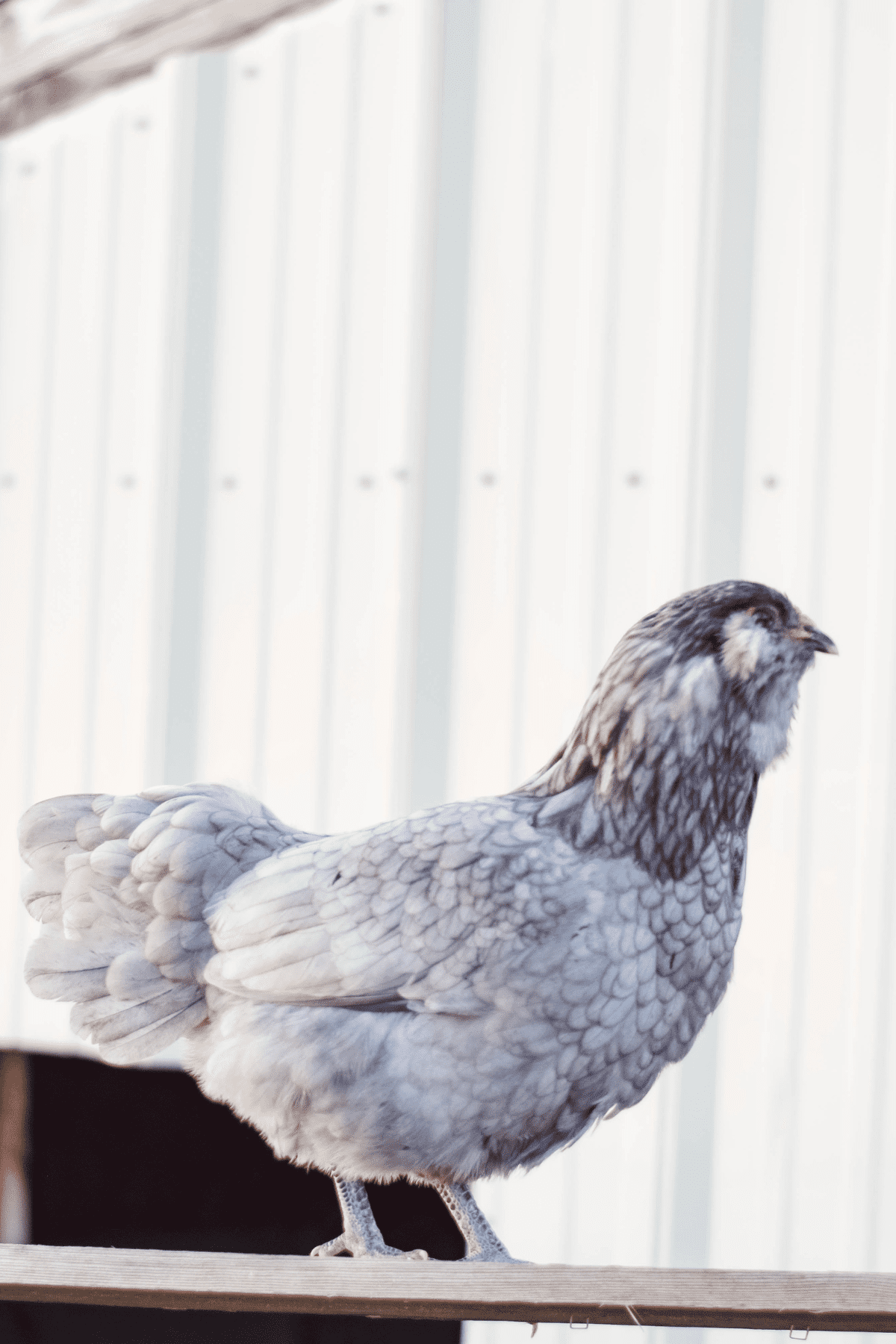
Ducks VS Chicks…what is the best option?
Ducks typically aren’t thought of or included in the homestead plans. But did you know that they have many benefits and often times are better than chickens?
Raising chickens and ducks can be rewarding, but there are some differences between the two that you might want to consider when deciding which is right for you. Here are some factors to compare when it comes to raising chickens vs ducks:
- Egg Production:
- Chickens: Chickens are prolific egg layers, and they start laying eggs at a younger age than ducks. The egg production of different chicken breeds can vary, but in general, you can expect regular and reliable egg production.
- Ducks: Ducks also lay eggs, but their egg-laying patterns can be more inconsistent compared to chickens. Some duck breeds are good layers, while others may lay fewer eggs.
- Hardiness:
- Chickens: Chickens are generally hardy birds and can adapt well to different climates. They are more cold-tolerant than ducks and can handle colder temperatures.
- Ducks: Ducks are more cold-sensitive and may need additional protection during winter. However, they are often better at handling wet conditions and can thrive in areas with ponds or water sources.
- Foraging Behavior:
- Chickens: Chickens are known for scratching and pecking at the ground to find insects and seeds. They can be good foragers but may cause damage to gardens.
- Ducks: Ducks are excellent foragers, and they also eat insects and weeds. Ducks are less likely to scratch up garden beds compared to chickens.
- Noise Level:
- Chickens: Chickens are relatively quiet, especially hens. Roosters can be noisy, crowing in the early morning.
- Ducks: Ducks can be noisier than chickens. They may quack loudly, especially during the egg-laying process or when they are excited.
- Water Requirements:
- Chickens: Chickens don’t have the same affinity for water as ducks. While they need access to clean water, chickens don’t necessarily require a pond or water source for swimming.
- Ducks: Ducks are water-loving birds and enjoy swimming. If you keep ducks, providing a pond or water source for them to swim and clean themselves is essential.
- Space Requirements:
- Chickens: Chickens generally require less space than ducks. A chicken coop with a run can be sufficient for many backyard flocks.
- Ducks: Ducks need more space and are ideally suited to areas with access to ponds or a water source. They can be messy, and their living quarters may need more frequent cleaning.
- Personality:
- Chickens: Chickens can have distinct personalities, and some breeds are known to be more docile or friendly than others.
- Ducks: Ducks are often described as sociable and can form strong bonds with their owners. Some duck breeds are known for being more personable.
Most of our chickens are gentle and friendly which makes them great for our toddlers to be around. And specific breeds are much more kinder than others.
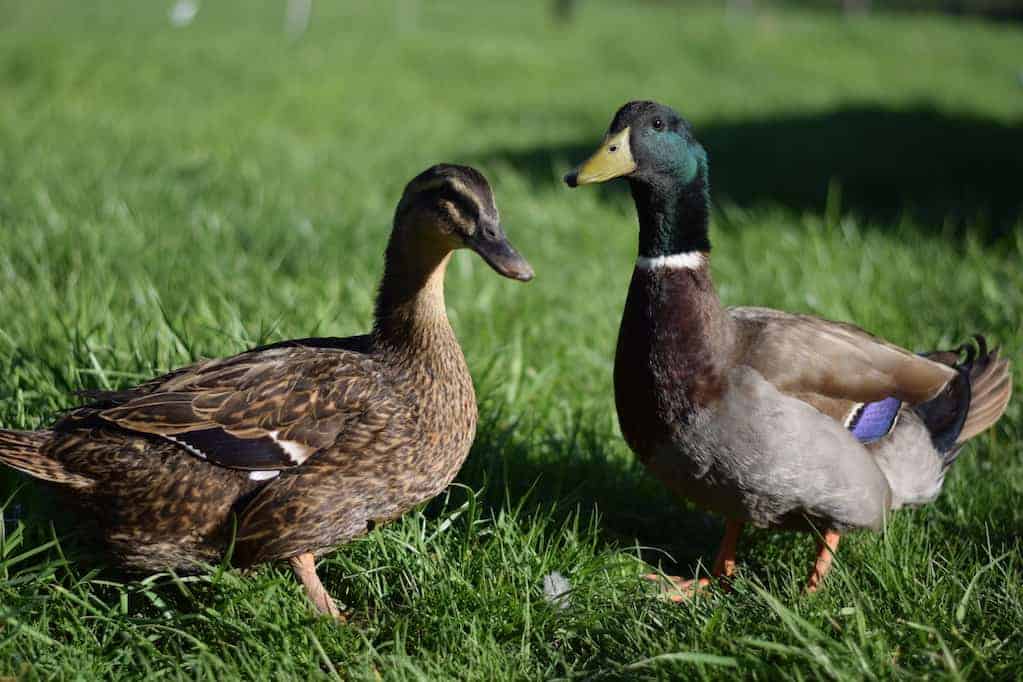
Our ducks are a little bit more friendly and are just less aggressive than chickens. And despite if your chickens mean to or not, it hurts when they peck you with their beaks.
Add in a protective rooster to the mix and it could be a bad time, especially for little children.
Domestic ducks also don’t fly which makes them easier for little ones to help catch when needed. But this is also another reason why I don’t like our ducks to free range. They can’t fly to safety if a predator is trying to get after them.
Duck Eggs VS Chicken Eggs
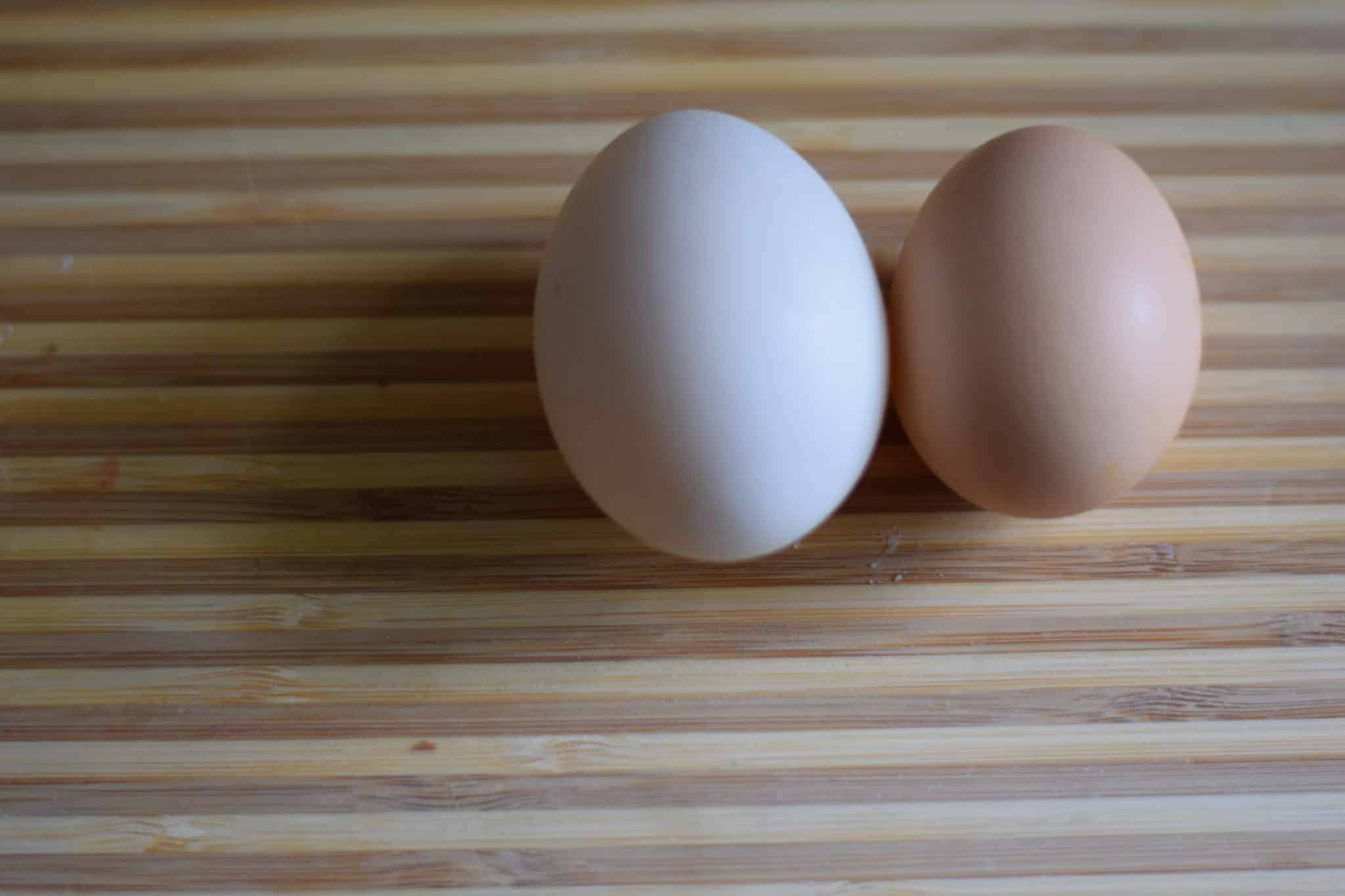
Some duck breeds are better layers than some chicken breeds.
This can vary greatly on duck breed, which is also the same for chickens. Some breeds lay year round which is great if you want to have fresh eggs daily and they lay more years than a chicken. Again, this can be dependent on breed.
Chickens can also lay eggs year round, but most of the time it is done seasonally and slows down after a couple of years.
Duck eggs have a higher fat content. But good fat is, well good. Their eggs are also generally bigger and contain more egg white which makes them great for baking.
Some people say that they also have a richer taste. So it’s a matter of preference. And to be honest, we haven’t really noticed any difference.
Raising Ducks and Chickens Together
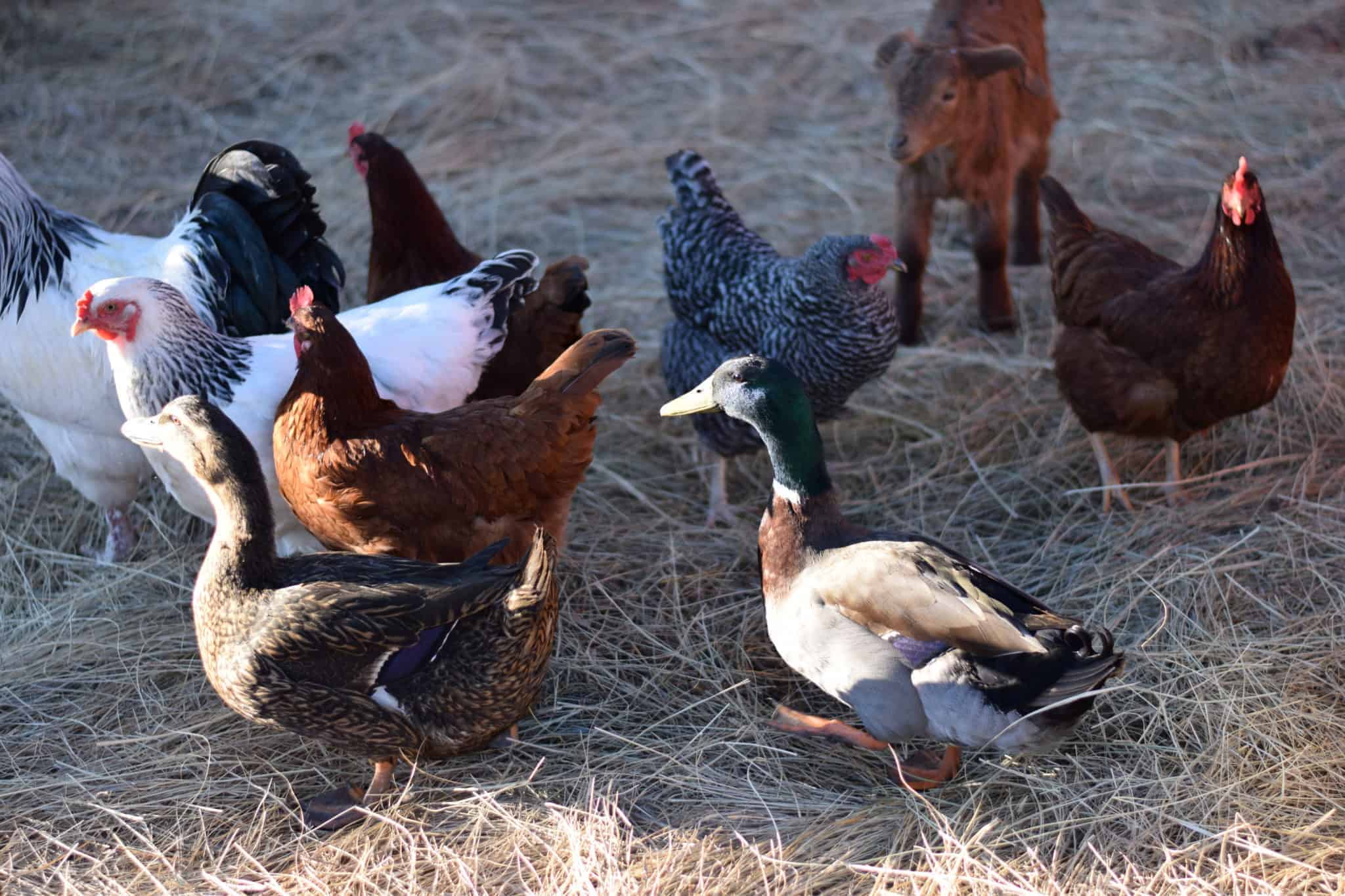
We house our ducks and chickens together. Originally we had them separated, but over the winter we moved the ducks to the chicken coop for added warmth. And they all instantly became buddies, so we decided not to separate them again.
The ducks sleep on hay on the floor of the coop at night and the chickens sleep up on their perches.
Ducks love and they need water readily available. Ducks love to swim and splash around in, but they also need water to swallow their food.
But be warned, ducks are messy. Very, very messy.
We personally don’t keep water in the coop because we don’t want a disaster or added moisture to make our flock sick.
Note: get familiar with potential for diseases if keeping multi flocks housed together.

A simple wading pool set up in the run with a few inches of water is sufficient for ducks. And because we don’t add too much water, it isn’t a problem if a chicken gets in the pool. We haven’t had much trouble with this.
If you choose not to keep chickens and ducks together, a simple shelter that is protected from predators is all they need for night time. They also do not need a perch like chickens do.
And if you do, consider there can be added risk of diseases. Some diseases effect each animal differently. Just be sure to do your research before making the decision on keeping multiple animals housed together.
What do you feed ducks and chickens?
Both ducks and chickens are excellent foragers. They love to graze around the yard and hunt for bugs and various plants. Since, we have a predator problem, we allow our flock to graze with our goats and use this electric fencing.

A word of warning, unless you plan on having chickens in your garden to help prep your garden beds, you probably don’t want them in your garden beds. They are great at scratching and tilling up the dirt and will pretty much destroy your garden. Ducks aren’t as destructive though.
Ducks and chickens eat similar food, but ducks require a little more protein. We basically feed our chickens and ducks the same feed but it is used mostly as a supplement since they get most of their diet from foraging. We usually vary the supplements between layer feed, scratch grains, and cracked corn.
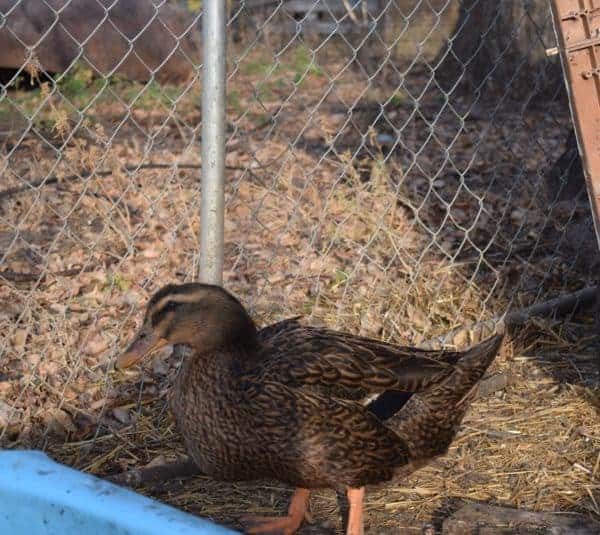
And again, ducks need water to swallow and digest their feed.
One difference between ducks and chickens is that ducks tend to eat a lot more. Both of our ducks and chickens get treats or kitchen scraps, leftover scrambled eggs, meal worms, etc.
Contrary to what the majority of people think, feeding ducks bread or crackers is not beneficial to their health and should be avoided.
The Benefits of Both Chickens and Ducks
Aside from the benefit of fresh eggs, bug and pest control, both ducks and chickens have some very awesome benefits.
They are both entertaining.
Have you every stepped out the door with treats and watched the chickens run across the yard to happily greet you at the fence? Pure entertainment.
Ducks have a pretty awesome waddle. Just watching them walk across the yard and gobble up bugs, is enough to keep me entertained for awhile. I’m easily amused, folks.
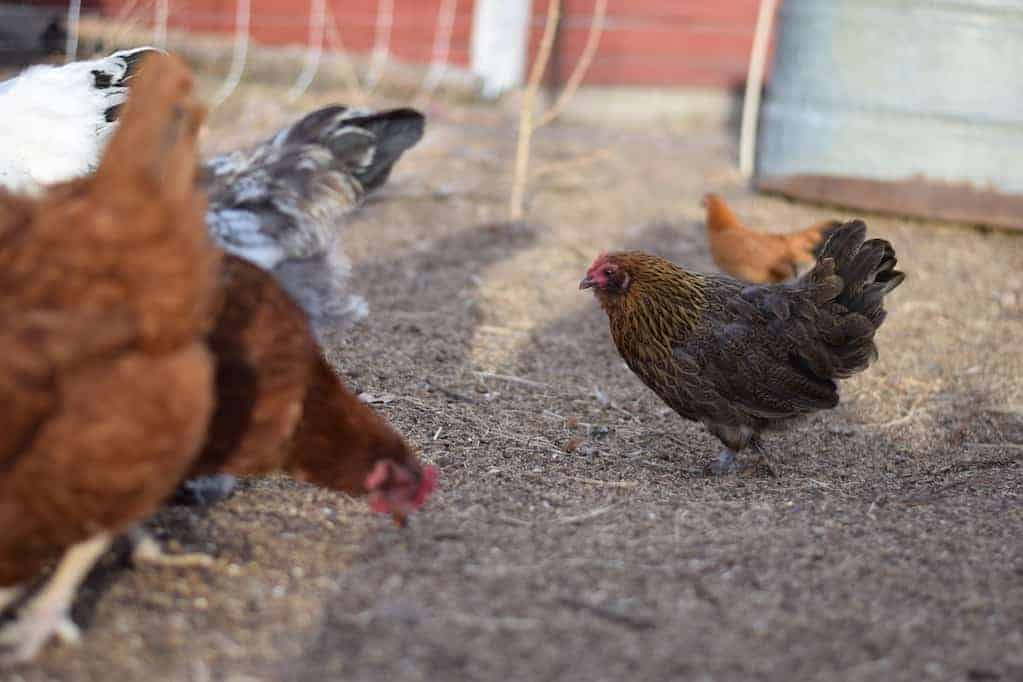
Both ducks and chickens are great animals for children. If you have toddlers and preschool age children, these animals make great starter animals to the homestead. Supervised, of course. Teaching children duck and chicken chores is incredibly simple.
My children get a ton of joy with helping collect eggs in their little baskets!
Aside from changing out their waterers, the wading pool, and feed bowls, both ducks and chickens are fairly low maintenance.
So, those are just a little comparison of ducks vs chickens. And why you should consider adding ducks to your homestead, because they clearly are the winner here.
Ultimately, the choice between raising chickens and ducks depends on your preferences, available space, and the specific goals you have for keeping poultry. Both chickens and ducks can make wonderful additions to a backyard or homestead, providing eggs, pest control, and enjoyable companionship.

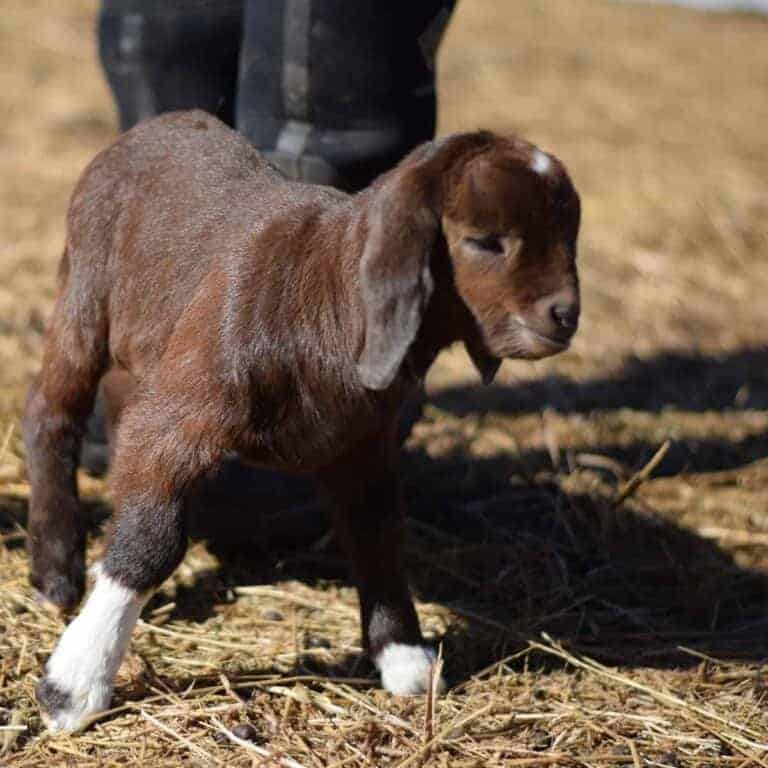
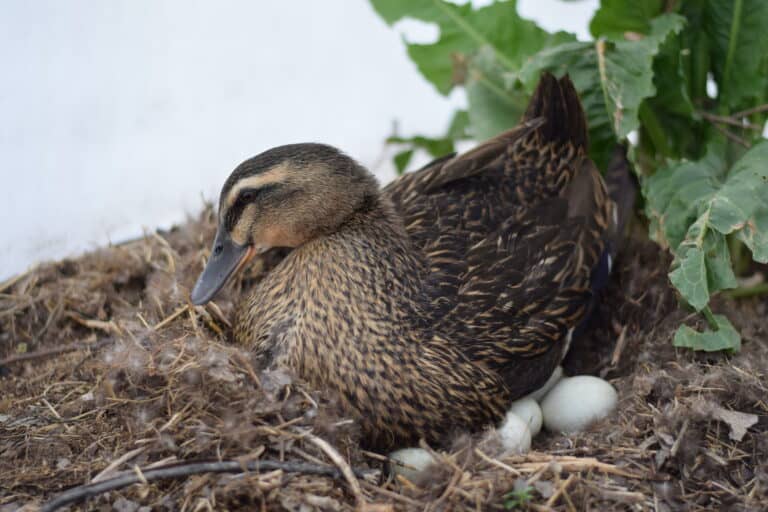
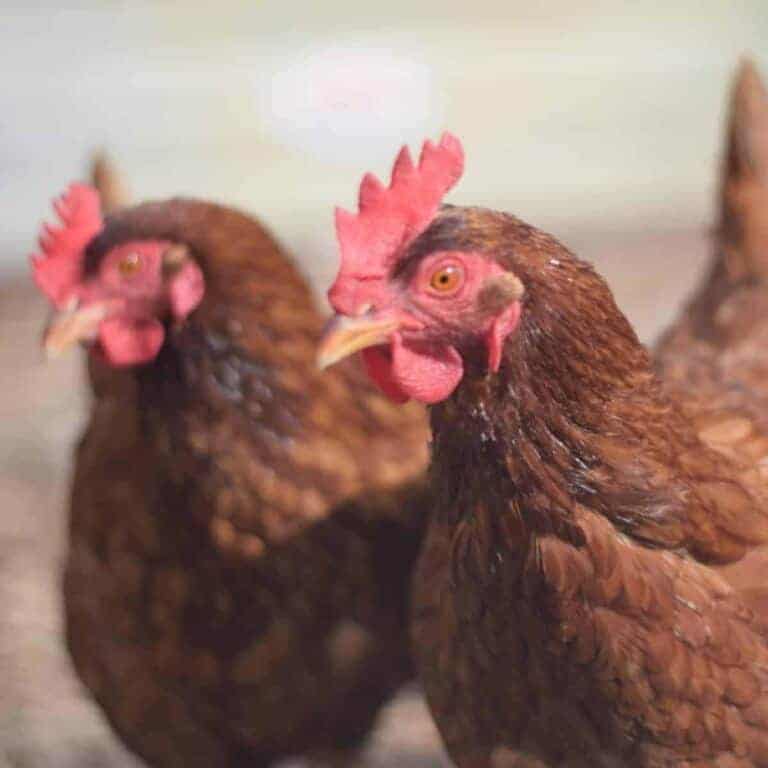
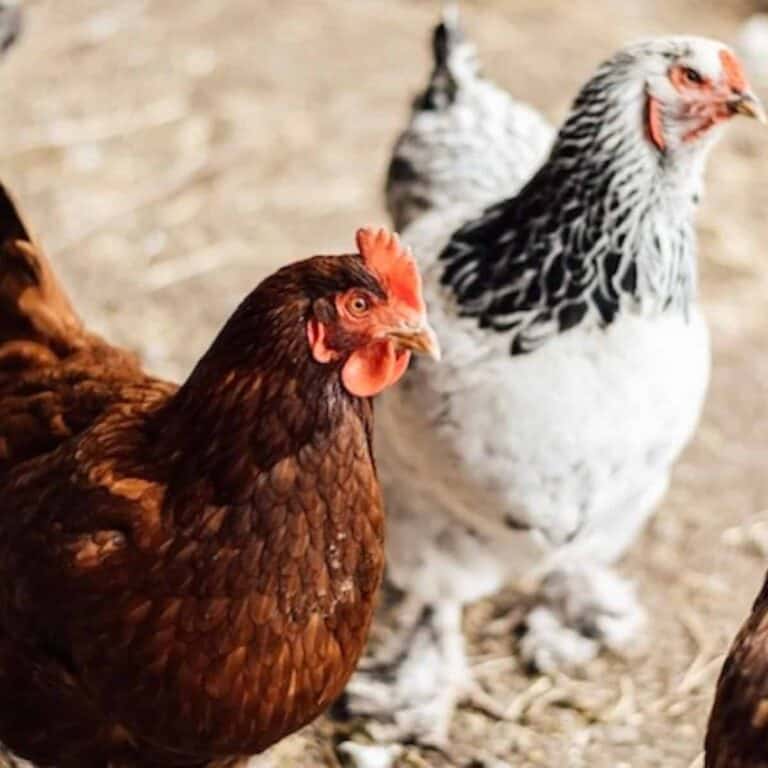
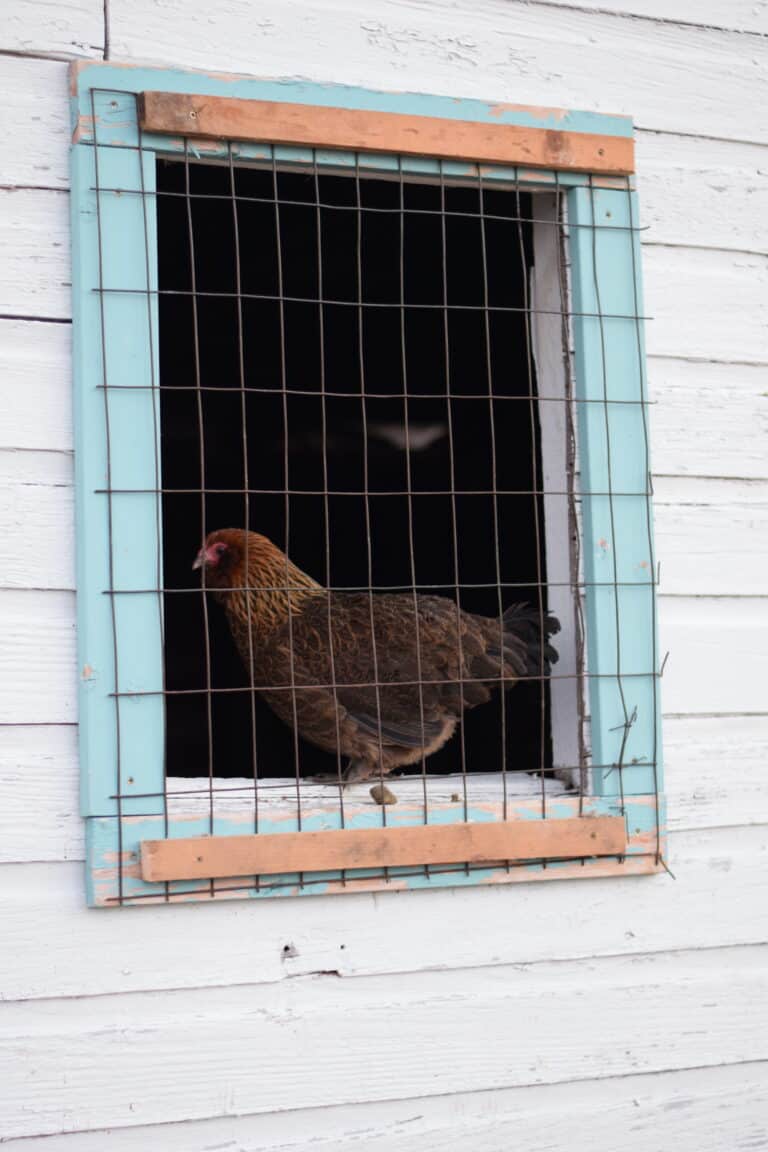
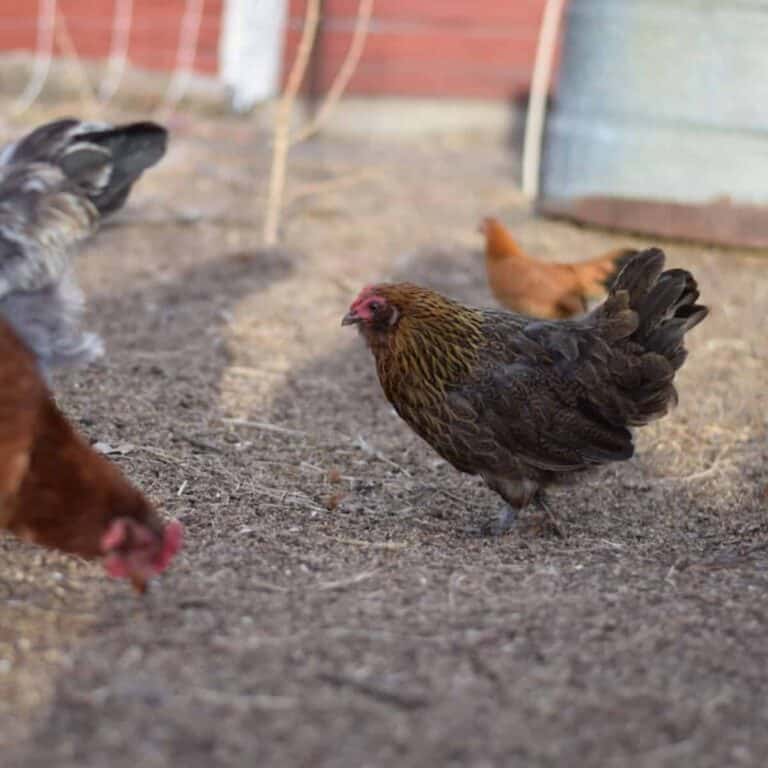
Yay! I love both chickens and ducks…and turkeys! This is our first year with ducks, and we keep them with our chickens too. Do you know when we can expect them to start laying? About how many months old?
Hi Heidi!
From what I remember, our ducks were around 4 months old when they started laying. I think it also depends on breed. What breed are you getting?